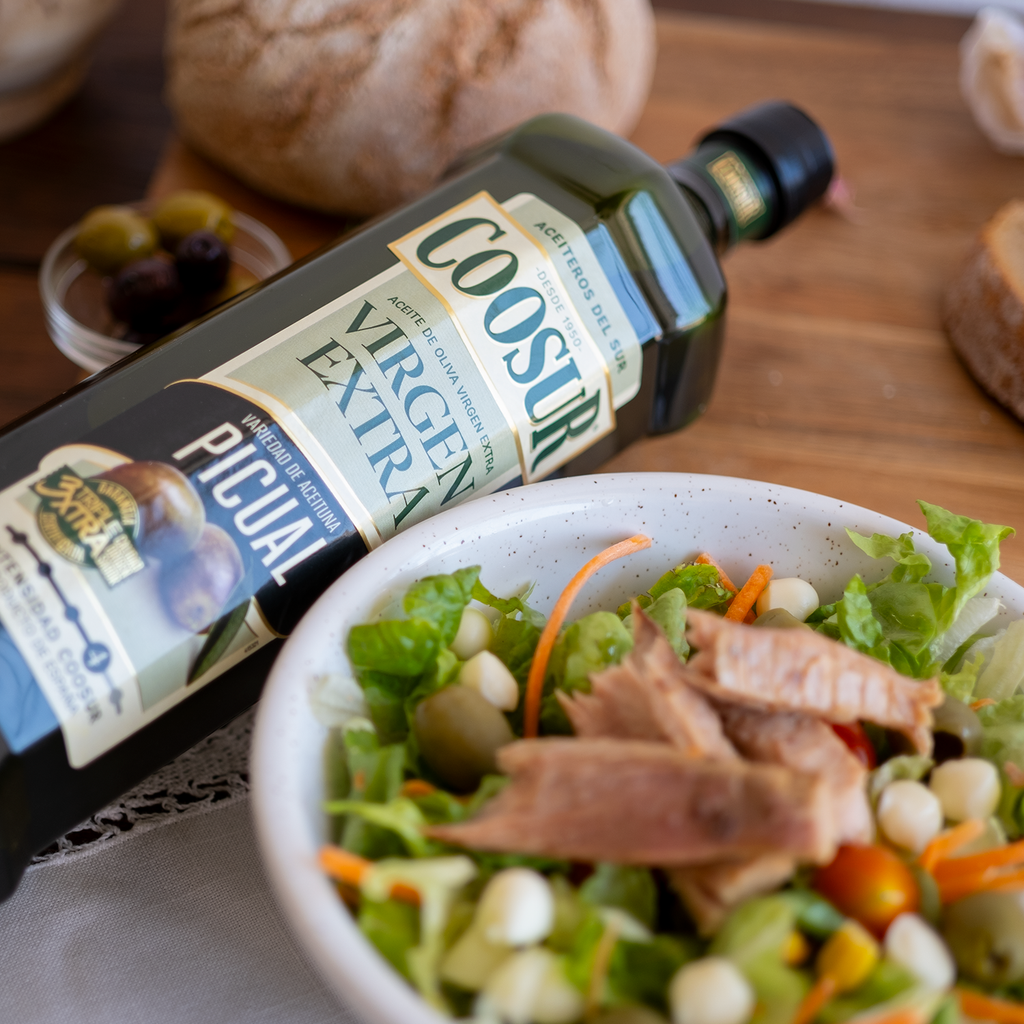Currently, there are different varieties of this product that are distinguished by both their flavor and nutritional properties.
Olive oil, popularly known as "liquid gold", is an essential ingredient in the Mediterranean diet and in global cuisine. However, not all oils are the same. There are different varieties of this product that are distinguished by both their flavor and nutritional properties.
The 3 categories of olive oil:
Olive oil is mainly classified into three categories:
- Extra virgin olive oil (AOVE): the highest quality, obtained through mechanical processes that preserve its flavor, aroma, and antioxidant content, making it perfect for salads and raw consumption.
- Virgin olive oil: also of high quality, but with a stronger flavor and slightly higher acidity, making it an ideal option for cooking.
- Refined olive oil: milder, as it has been treated to remove impurities, making it suitable for frying and daily use in the kitchen.
Olive varieties:
Spain is the leading producer, and it offers a wide variety of olives that result in different types of oils with unique flavors and properties:
- Arbequina: a smooth and delicate oil, with a fruity flavor that makes it the perfect choice for sauces and desserts.
- Picual: one of the most widely cultivated varieties in Spain, it is a robust oil with a bitter and spicy touch. Rich in antioxidants, it's ideal for frying and cooking at high temperatures.
- Cornicabra: known for its fruity and bitter flavor, it has great balance and is excellent for pairing with meats or salads.
- Hojiblanca: offers a mild and sweet flavor at first, with a spicy finish, making it versatile for both raw use and cooking.
- Frantoio: of Italian origin, it brings a mild flavor with almond notes and is perfect for dressing fresh dishes.
- Koroneiki: originally from Greece, it is famous for its high concentration of antioxidants and fruity flavor, making it an excellent choice for dressings and marinades.
Multiple health benefits
Its consumption offers numerous health benefits. Rich in antioxidants and healthy fats, it helps reduce the risk of cardiovascular diseases, improves digestion, and aids in the absorption of essential vitamins.
Furthermore, its role in the Mediterranean diet makes it a key food for promoting a long and healthy life.
Additionally, olive cultivation is an ancient tradition in the Mediterranean basin. For centuries, it has been a fundamental pillar in the gastronomy and daily life of many cultures. Today, it is globally recognized for its quality, becoming a star product in international exports and cuisine.

